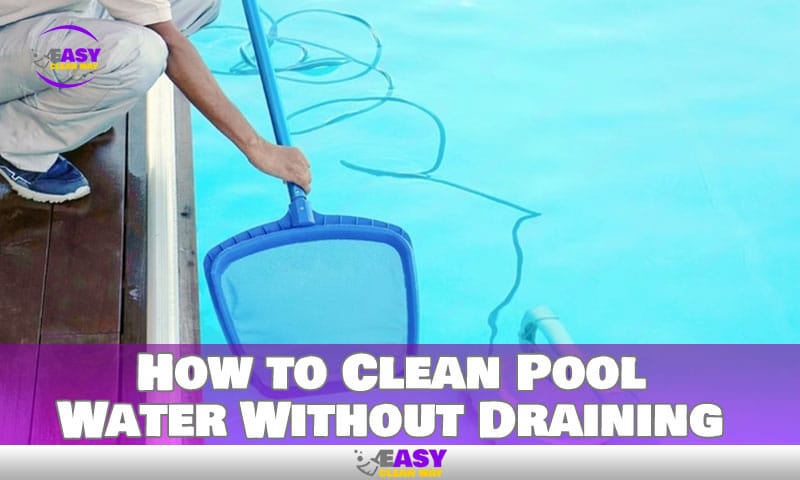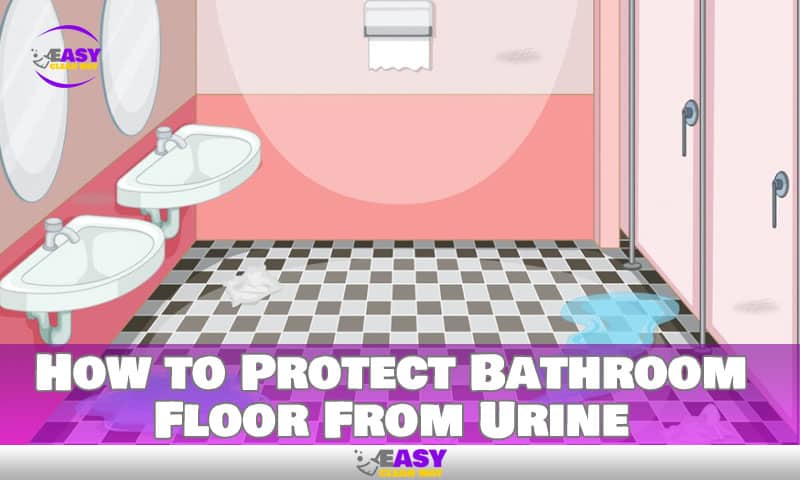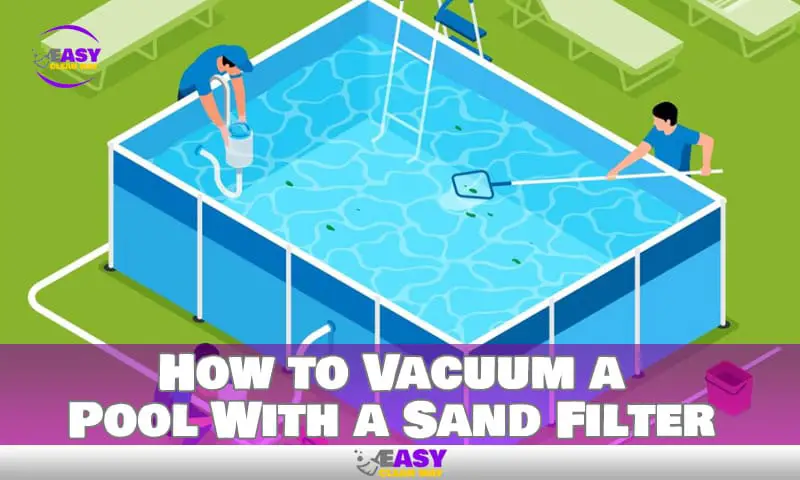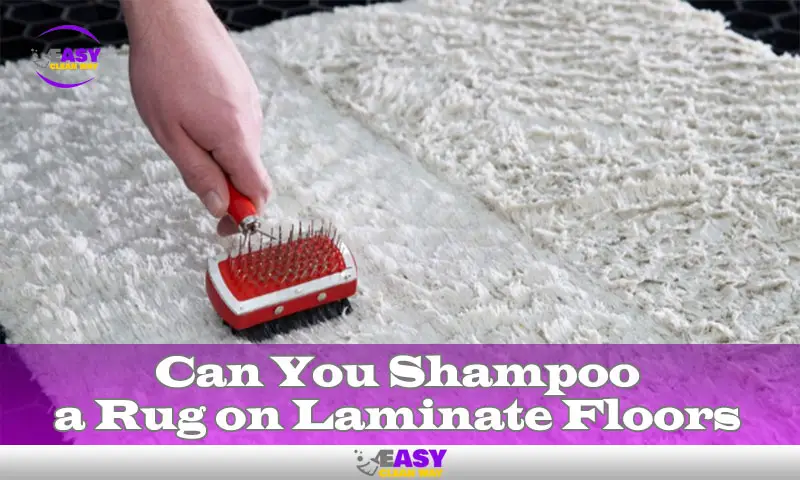To clean pool water without draining, start by balancing the chemicals and shocking the water. Regularly remove debris and scrub the pool surface to maintain clarity.
Maintaining a clean and sparkling pool without the hassle of draining is a top priority for pool owners. Balanced chemical levels are crucial for the health of your pool water. Shock treatments can also efficiently eliminate bacteria and algae, restoring the pool’s pristine condition.
Skimming to remove leaves, bugs, and other foreign objects, paired with a thorough brushing of the pool walls and floor, prevents algae buildup and keeps the water inviting. Additionally, proper filtration is essential, as a clean and functional filter system captures contaminants that can cloud the water. By implementing these methods, pool enthusiasts can enjoy a refreshing swim in crystal-clear water without the need for a complete drain. Remember that routine maintenance is the key to ensuring your pool remains an enjoyable retreat all season long.
The Importance Of Regular Pool Maintenance
Regular pool maintenance ensures clean and clear water for both fun and safety. Proper cleaning helps to prevent algae and bacteria. These can harm swimmers.
Maintaining chemical balance is also necessary. It keeps the water safe for swimming. It also protects the pool from damage. This can prolong its life.
To improve water clarity and quality, you should:
- Test water pH levels regularly.
- Use pool chemicals as needed.
- Skim and vacuum the pool weekly.
- Change pool filters often.
Assessing Pool Water Conditions
Assessing the quality of your pool water is essential for a safe swim. Check for cloudiness or green tinge; these could hint at algae or other impurities. Dirt, leaves, and bugs are common, but easy to spot. Oil films or scum on the water surface suggest contaminants.
Regular testing of water chemistry keeps your pool swim-ready. Test strips or kits measure levels of chlorine, pH, alkalinity, and more. Keeping these balanced is crucial to prevent corrosion or scaling. For precise results, consider consulting a pool professional.
Chemical Treatments To Purify Pool Water
Shocking the pool is a powerful way to clean your pool water. This process kills bacteria and algae. Use a large amount of chlorine or non-chlorine chemicals. Do this at night, as sunlight can reduce its effectiveness.
For algaecides and clarifiers, start with the right dose. Algaecides stop algae from growing. Clarifiers make tiny particles stick together. This makes it easy to filter them out.
Keeping pH and chlorine levels right is key. Quick test kits can check these levels. Aim for a pH between 7.2 and 7.8. Chlorine should stay around 1-3 ppm. Safe water is clean and clear.
Physical Methods For A Cleaner Pool

Keeping your pool water clean is crucial for swimmer safety. The first step, skimming, involves removing debris from the water’s surface. A long-handled net can capture leaves, bugs, and other floating items. This simple task helps prevent the filtration system from clogging.
Vacuuming the pool floor is another effective method. It removes dirt that the filter misses. Use a pool vacuum weekly to maintain clear water.
Maintaining your pool’s filter is key to clean water. Clean or replace it as recommended by the manufacturer. This ensures efficient operation and extends the filter’s life.
Brushing your pool walls and floor prevents algae buildup. Use a pool brush to scrub these surfaces. Do this at least once a week for best results. A clean pool provides a safe and enjoyable swimming experience.
Circulation And Aeration Techniques
Ensuring proper water movement in your pool is crucial. Stagnant water can lead to algae growth and water that isn’t clean. Active circulation helps distribute chemicals evenly. This makes cleaning effective throughout the entire pool. Aim to run your pool’s pump at least 8 to 12 hours a day. This will help keep the water moving and reduce the need for chemicals.
Aeration is key to keeping pool water clean without draining. This process introduces air into the water. It can naturally manage pH levels and improve water quality. Simple actions like pointing your return jets upwards create a slight ripple on the water surface. This increases air exposure. Swimming and splashing also add air, which benefits the water. Consider an aeration device for larger pools. They help maintain water cleanliness and clarity.
Green Solutions For Eco-friendly Cleaning
Keeping pool water clean is vital for a fresh swim. Saltwater systems offer a great way to do this. They use salt to generate chlorine, which keeps the water clear and free from algae. Benefits of saltwater systems include softer water and less irritation for skin and eyes. Many homeowners prefer this for its gentle feeling and ease of maintenance.
Another eco-friendly method is ionization. It uses minerals like copper and silver to purify the water. These ions stop algae and other microbes from growing. The water stays clean with minimal chemical use.
UV light purification is another effective technique. It works by exposing pool water to UV light, killing bacteria and viruses. This process reduces the need for chemicals, making it safe for both swimmers and the environment.
Routine Care Schedule
Maintaining crystal clear pool water requires regular care. Your daily tasks should include skimming the surface and checking the water level. Every week, brush walls and floors to prevent algae buildup. Also, test and balance chemical levels. Don’t forget to clean the pool filter regularly.
Different seasons bring different needs. During spring and fall, keep an eye on falling debris. A pool cover can save you a lot of trouble. Summertime might require more frequent chemical checks due to heavy use. Cold months could mean running your pool pump less often.
Remember, these steps help keep your water clean without draining. A consistent maintenance routine goes a long way in keeping your pool inviting.
FAQ
How Do You Clean A Pool That Has Been Sitting?
Remove debris with a net. Scrub walls and floor using a pool brush. Run the filtration system. Balance chemicals with a testing kit. Consider shock treatment for algae.
How Do I Clean My Pool Water Fast?
Shock your pool with chlorine to quickly kill bacteria and algae. Use a pool clarifier to coagulate particles for easy filtering. Vacuum debris, brush walls, and clean the filter to maintain clear water. Run the pump continuously to expedite the cleaning process.
How Do I Get Rid Of Pool Stains Without Draining The Pool?
To eliminate pool stains without draining, identify the stain type, then apply a localized stain remover or use a poultice. Regular brushing and balanced water chemistry can prevent further staining. If needed, consult a pool professional for stubborn stains.
How Do You Pump Dirty Water Out Of A Pool?
To pump dirty water out of a pool, use a submersible pump equipped with a filter. Place the pump at the pool’s lowest point and discharge the water to an appropriate location. Ensure the pump stays clear of debris to prevent clogging.
Conclusion
Maintaining a pristine pool doesn’t have to mean draining precious water. Regular upkeep with the right chemicals, filters, and natural solutions keeps the sparkle without waste. Embrace these eco-friendly tips for a swim-ready backyard oasis all season long. Dive into clear waters and enjoy your sustainable paradise.
Hey there! I’m Wilfred Holguin, your Home Clean Expert blogger. I’m on a quest to help you conquer the clutter in your home and embrace the joys of a tidy home.





